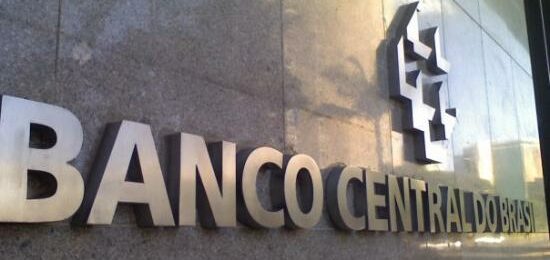O central bank Brazilian was created in military regime, on December 31, 1964, during the government of White Castle. In 1965, began activities aimed at unifying operations that were divided between Somoc (Superintendency of Currency and Credit) and the Bank of Brazil.
ADVERTISING
Imagine if banks didn't exist? We wouldn't use money and we would still be exchanging goods, just like in ancient times in history. It wouldn't be practical, right?
So, for the financial market to function, the entire system needs to be regulated. That's what the Central Bank does.
The BC is the institution responsible for ensuring the economic stability of the country, by maintaining the purchasing power of currency and regulating the financial system.
ADVERTISING
Montetary Policy
Since assuming the presidency of the Republic in his third term, the president Squid has questionI love driving the monetary policy by the Central Bank with regard to the high Selic rate – the basic interest rate of the Brazilian economy – currently at 13,75% per year. Lula has also criticized central bank autonomy, which is guaranteed by law sanctioned by former president Jair Bolsonaro in 2021.
Let's better understand the Is it important for the Central Bank to be autonomous?
The Economist José Mauro Dellela,, professor in the Department of Administration at FAAP who was Chief Economist at Itaú Unibanco Asset Management, explains that the main reason is shield the team responsible for the Central Bank from political interference.
ADVERTISING

“In a very simplified way, a way of shielding the team responsible for the Central Bank from political interference by the ongoing government. The Central Bank is a very relevant and powerful institution, which has the power to define, perhaps the main price in the economy, which is the interest rate”, he explains.
Second Dellela, the role of the Central Bank, at the end of the day, is to try put the interest in the place closest to where it should be, because if he puts interest rates much higher than they should be, this will generate an unnecessary contraction of the economy.
“This power to set this price is a very relevant power, because it has implications for economic activity, for inflation, for the level of employment.”
ADVERTISING
Dellela states that this has major political implications and it is very common for governments to intend to set the price of playing this role.
It is worth remembering that the president of the Central Bank is not appointed by the President as a minister, but rather by another rule, the one that defines the independence of the central bank.
“The idea of the independence of the Central Bank is basically, therefore, to shield it from political influences, from the government of the moment. Whatever it is, the government would obviously like decisions to be taken that increase its probability of having greater popularity, where it will have central electoral success”.
ADVERTISING
Such autonomy of the Central Bank
For Dellela, the president of the BC, in theory, has to think long-term and not be concerned with the next election, but rather with the future interest rate curve, with the long interest rate curve and with maintaining low inflation .
“Any government anywhere complains. When the central bank about the interest rate, they complain and say they would like to have lower interest rates. This is standard. The idea of independence comes from there.”
The economist explains that everyone is always subject to some type of political pressure, but it is important to be careful with who occupies the presidency of this body. Defining the BC’s mandates is important in the context of independence and autonomy.
Furthermore, according to the central bank Brazilian, the independence of the body aligns it with best international practices. “Autonomy allows the institution to pursue its objectives, established by law and by the National Monetary Council (CMN), in a technical, objective and impartial manner”, informs the municipality.
According to Central Bank of Brazil, your mission is: ensure the stability of the purchasing power of the currency and a solid and efficient financial system.
It is worth remembering that the autonomy of the body does not exempt it from responsibilities. The Central Bank reports to the National Congress every six months. The BC president and directors are even questioned.





